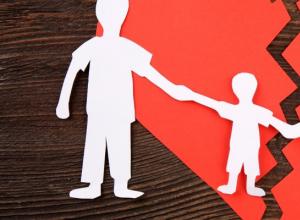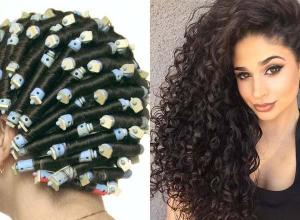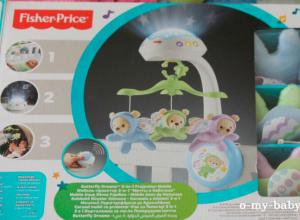Maternal care. Why is it hard to see that mom was causing harm?
In all mammals, including humans, maternal behavior is quite varied. In a number of animal species, it is useful first of all to distinguish between feeding, nest construction, and the mother’s return of the baby to its place. Each of these maternal behaviors is vital to the survival of the offspring, but the behavior that is of greatest interest to us at the moment is the behavior aimed at retrieving the young.
Retrieval can be defined as any kind of parental behavior whose predicted outcome is either the return of the young to the nest, to the mother herself, or both. Rodents and carnivores carry their young in their teeth; primates use their forelimbs for this. In addition, animals of most species call their young by making a characteristic sound - usually it is quiet, gentle and low. By inducing attachment behavior, this sound encourages the infant to return to its mother 1 .
__________________
1 For a review of studies of maternal behavior in mammals, see Rheingold (1963b).
Among people, behavior aimed at returning a child is included in various concepts; “maternal care” (“mothering”), “maternal care” (“maternal care”), “custody” (“nurturance”), etc. In some contexts they prefer to use the most general term “maternal care”, in others - "return of the child" The term “return of the child” draws attention, in particular, to the fact that a significant place in the mother’s behavior is occupied by actions aimed at reducing the distance between her and the child, as well as maintaining close physical contact with him. This important fact can easily be lost when other terms are used.
Returning the baby to her, the mother, who belongs to the order of primates, takes him in her arms and hugs her. Since attachment behavior produces similar results, it is obvious that return behavior is most easily conceptualized using similar concepts. It can then be defined as behavior mediated by a number of control systems, the predicted outcome of which is the preservation of the young in the immediate vicinity. Can be studied conditions under which these systems are activated and cease to operate. The number of organismal factors that influence activation most likely includes the mother’s hormonal level. Among the environmental factors are the location and behavior of the baby: for example, when he moves beyond a certain distance or when he cries, the mother, as a rule, takes the necessary measures. And if she has reason to be alarmed or she sees that the cub is being carried away by someone else, she immediately begins to act energetically. Only when the cub is safe, i.e. in her arms, this form of behavior stops. At some other moments, especially when her baby, being nearby, happily plays with familiar individuals, the mother may allow him to do this. However, it cannot be said that her desire to return him is dormant: most likely, she does not take her eyes off the cub and is in constant readiness to act at the slightest sound of his crying.
The mother's behavior aimed at returning the calf and the behavior of the calf itself have similar results. Likewise, there is a similarity between the processes that lead to the selection of specific objects to which the return behavior of the young is addressed, on the one hand, and attachment behavior, on the other. Just as the cub begins to direct its attachment behavior to a specific mother, so returning behavior begins to be directed toward a specific cub. Evidence shows that in all mammal species, the process of recognition of the young takes several hours or days after birth and that, once the baby is recognized as her own, the mother directs her care only to that particular young.
There is a third aspect of similarity between the behavior of the mother aimed at returning the cub and the attachment behavior of the cub - it concerns their biological function. The presence of the mother in close proximity to the calf and the opportunity to press it to herself in case of danger - this behavior clearly has a protective function. In the natural environment, the main danger from which the cub is thus protected most likely comes from predators. Other dangers include falling from heights and drowning.
The most elementary forms of maternal behavior aimed at returning the calf are observed in lower and great apes, but such behavior can be quite clearly seen in humans. In a primitive society, the mother is usually close to her child, at least at such a distance that he can be seen and heard. A mother's anxiety or a baby's cry immediately forces her to act. In more developed societies, this situation is more complicated, partly because the mother often assigns someone else to look after the child for part of the day. But even so, most mothers have a strong desire to be near their infant or slightly older children. Whether they give in to their desire or overcome it depends on many factors - personal, cultural and economic.
Children need the love of their parents throughout their lives, and newborn children especially. It is from the first days and months of life that contact with mother is especially necessary. The baby needs to be put to the breast and preferably as often as possible. This strengthens the baby's immune system. For kids, everything around is new and this makes them sometimes capricious. They miss the atmosphere when they were in the womb, which is why they so need warmth, gentle touches and hugs from the person closest to them, their mother.
Gradually, the baby will get used to the environment and will begin to be interested in the things that surround him.
Eye contact
Every day, something new appears in the child and this is not surprising, because the baby is growing. Soon he will begin to recognize his mother's face, as evidenced by the smile on his face when he sees her. The so-called eye contact is needed by both mother and child. This will play an important role in the future. After all, it often happens that relatives understand a friend without words, at a glance.
In the subconscious of children, a feeling of security is deposited for the rest of their lives at the mere mention of their mother. Who, if not the mother, can protect her from dangers and avert any troubles from her little blood, her beloved child.
About baby development
For the full development of the baby, he needs:
- Walk
- Play
- Take him for a routine inspection
- Feed
- Take care of his hygiene
Raising a child is not an easy task, because every mother wants to be proud of her son or daughter and raise him to be a worthy person. To do this, you need to invest all the best in him from his very birth and instill love and respect for others. By and large, you need to start with yourself; children always take their cues from their parents, which means they need to conform. As a rule, children who grow up surrounded by care and love from their parents respond to them in the same way and treat them with the same reverence.
Very cute video! How children were offered to exchange their mothers for toys:) Watch for everyone)
Ecology of consciousness. Psychology: Why is it so difficult to admit how guilty your mother was. The flow between a little girl and her mother should be one-way, constantly channeling support from mother to daughter. It goes without saying that girls are completely dependent on their mothers for physical, mental and emotional support.
The flow between a little girl and her mother should be one-way, constantly channeling support from mother to daughter. It goes without saying that girls are completely dependent on their mothers for physical, mental and emotional support. However, one of the many facets of the mother wound is the overall dynamic when the motheris inadequately dependent on the mental and emotional support provided by her daughter. This role reversal is extremely damaging to the daughter, having long-lasting effects on her self-esteem, confidence, and sense of self-worth.
Alice Miller describes this dynamic in The Drama of the Gifted Child. A mother, having given birth to a child, may unconsciously feel as if she finally has someone who will love her unconditionally, and begin to use the child to satisfy her own needs that have remained unsatisfied since her childhood. Thus, the projection of his mother's mother is superimposed on the child. This puts the daughter in an unbearable situation where she is made responsible for the well-being and happiness of her mother.
And then the young daughter has to suppress her own needs that arise during her development in order to satisfy the emotional needs of the mother.
Instead of relying on the mother as a secure emotional base for exploration, the daughter is expected to be such a base for her mother. The daughter is vulnerable and dependent on her mother for survival, so she has little choice: either submit and meet her mother's needs, or rebel against her to some extent.
When a mother assigns her daughter adult roles such as surrogate partner, best friend, or therapist, she is exploiting her daughter.
When a daughter is asked to act as an emotional support for her mother, she can no longer rely on her mother to the extent necessary to meet her own developmental needs.
There are several options for how a daughter can react to such dynamics:
“If I’m a very, very good girl (obedient, quiet and don’t want for anything), then mommy will finally see me and take care of me” or
“If I am strong and protect my mother, she will see me” or
“If I give my mother what she wants, she will stop treating me like that,” and so on.
As adults, we can project these dynamics onto other people. For example, on my relationship: “If I always try to be good enough for him, he will be in a relationship with me.” Or at work: “If I get one more education, I’ll be good enough for a promotion.”
In this case, mothers enter into competition with their daughters for the right to receive maternal care.
Thus, they convey the belief that maternal care or love is not enough for everyone. Girls grow up believing that love, approval and recognition very little, and to earn it, you have to work hard. Later, as adults, they attract situations into their lives that play out this pattern over and over again. (Many of these dynamics affect sons, too.)
Daughters who are assigned parental functions are deprived of childhood.
In this case, the daughter does not receive approval of herself as personalities, she receives this only as a result of performing a certain functions(relieving the mother of her pain).
Mothers may expect their daughters to listen to all their problems, and even ask their daughters for comfort and care to cope with their fears and anxieties as adults. They may expect their daughters to help them out of problems, deal with the mess in their lives or their emotional disturbances. The daughter may be constantly involved as a mediator or problem solver.
Such mothers convey to their daughters that they, like mothers, are weak, overburdened and unable to cope with life. For the daughter, this means that her needs, arising in the process of her development, overload the mother, so the child begins to blame himself for the very fact of his existence. The girl thus becomes convinced that she has no right to her own needs, no right to be listened to or approved for who she is.
Daughters who have been assigned parental responsibilities may cling to this role into adulthood due to many secondary benefits. For example, a daughter may only receive approval or praise when she plays the role of warrior in her mother's life or her mother's savior.
Statement of one's own needs may threaten rejection or aggression from the mother.
As a daughter gets older, she may fear that her mother is too easily upset, and because of this fear, she may therefore hide the truth about her own needs from her mother. The mother can play on this, falling into the role of the victim and forcing her daughter consider herself a villain if she dares to declare her own separate reality. Because of this, the daughter may develop an unconscious belief: “There are too many of me. My true self hurts other people. I'm too big. I need to stay small to survive and to be loved."
Although these daughters may receive the "good mother" projection from their mothers, sometimes the image of a bad mother can be projected onto them. For example, this may happen when the daughter is ready to emotionally separate from her mother as an adult. A mother may unconsciously perceive her daughter's separation as a repetition of her own mother's rejection of her. And then the mother may react with undisguised childish rage, passive insults or hostile criticism.
You can often hear from mothers who exploit their daughters in this way: “It’s not my fault!” or “Stop being so ungrateful!” if the daughter expresses displeasure about their relationship or tries to discuss the topic. This is a case of a daughter being robbed of her childhood by being forced to satisfy her mother's aggressive needs, and then the daughter being attacked for having the audacity to suggest a discussion of her relationship dynamics with her mother.
The mother may simply not want to see her contribution to her daughter's pain because it is too painful for her to bear. herself. Often these mothers also refuse to acknowledge how their relationships with their own mothers affected them. Phrase "Don't Blame Your Mother" can be used to shame a daughter into remaining silent about the truth of her pain.
If we as women are truly ready to claim our power, we need to see how our mothers truly were to blame in our pain in childhood. And as adult women, we are solely responsible for healing our own traumas.
Those with power can also cause harm, whether intentionally or not. Regardless of whether mothers are aware of the harm they have caused or want to see it, they are still responsible for it.
Daughters need to know that they have the right to feel pain and express it. Otherwise, true healing will not happen. And they will continue to sabotage themselves and limit their ability to succeed and prosper in life.
Patriarchy discriminated against women so much that when they had children, they, hungry and hungry for self-affirmation, approval and recognition, sought love from their young daughters. The daughter will never be able to satisfy this hunger. And yet, so many generations of innocent daughters voluntarily sacrifice themselves, laying themselves on the altar of maternal suffering and hunger in the hope that one day they will be “good enough” for their mothers. They live with the childish hope that if they can “feed the mother,” then the mother will eventually be able to feed her daughter. This moment will never come. The only way to satisfy your soul's hunger is to begin the process of healing your mother's trauma and standing up for your life and your worth.
We need to stop sacrificing ourselves for our mothers because ultimately our sacrifice will not satisfy them. Only the transformation that is on the other side of her pain and grief, which she needs to deal with herself, can satisfy the mother. Your mother's pain is her responsibility, not yours.
When we refuse to acknowledge how our mothers may be to blame for our suffering, we continue to live with the feeling that there is something wrong with us, that we are somehow bad or defective. Because it's easier to feel shame than to throw it away and face the pain of realizing the truth about how we were abandoned or used by our mothers. So shame in this case is simply a defense against pain.
Our inner little girl will choose shame and self-deprecation because it maintains the illusion of being a good mother.
(Holding on to shame is a way for us to hold on to our mother. Thus, shame takes on the function of feeling maternal care.)
To finally let go of self-hatred and self-sabotage, you need to help your inner child understand that no matter how faithful he is to his mother, while remaining small and weakened, the mother will not change and will not become what the child expects. We need to find the courage to give our mothers the pain they asked us to bear for them. We give away pain when we place responsibility on those to whom it really belongs, that is, given the dynamics of the situation, to an adult- the mother, not the child. As children, we were not responsible for the choices and behavior of the adults around us. When we truly understand this, we can take full responsibility for processing this trauma, acknowledging how it has affected our lives so that we can act differently in accordance with our deepest nature.
Many women try to skip this step and go straight to forgiveness and mercy, where they can get stuck. You can't truly leave the past behind if you don't know What exactly needs to be left behind.
Why is it so difficult to admit how guilty your mother was:
- As a child, we were completely dependent on our parents, on our mother, and could not express our needs;
- Children are biologically designed to remain loyal to their mother no matter what she does. Mother's love is critical for survival;
- Being of the same sex as our mother, we assume that she will be on our side;
- We view the mother as a victim of her own unresolved traumas and the culture of patriarchy;
- Religious and cultural taboos “honor your father and mother” and “the sanctity of motherhood”, which instill in us a feeling of guilt and force children to remain silent about their feelings.
Why is self-sabotage a manifestation of maternal trauma?
- As a victim of parentification, we misinterpret the connection with the mother (love, comfort and security) - this connection was created in an atmosphere of self-suppression. (Being little = receiving love);
- In this way, we create a subconscious connection between love for our mother and self-abasement;
- While your conscious mind may want success, happiness, love and confidence, your subconscious mind remembers the dangers of early childhood, where being big, spontaneous and true to yourself meant the pain of rejection by your mother;
- For the subconscious: rejection by mother = death;
- For the subconscious: self-sabotage (being small) = safety (survival).
This is why it can be so hard to love yourself. Because letting go of your feelings of shame, guilt and self-sabotage feels like letting go of your mother.
Healing maternal trauma is about recognizing your right to life without dysfunctional patterns laid down in early childhood in communication with your mother.
This is about honestly thinking about the pain in your relationship with your mother for the sake of your healing and transformation, which every woman has the right to. This is about working internally on yourself to free yourself and become the woman you are meant to be. This is not about expecting your mother to finally change or satisfy that need that she could not satisfy when you were a child. Just the opposite. Until we look squarely at and accept our mother's limitations and the ways in which she harmed us, we are stuck in purgatory, waiting for her approval and constantly putting our lives on hold as a result.
Healing maternal trauma is a way to be whole and take responsibility for your life.
Recently, a reader commented about how she spent over 20 years healing her mother's trauma and, although she had to distance herself from her own mother, her tremendous progress in healing allowed her to build a healthy relationship with her young daughter. She summed it up perfectly when she said of her daughter: ‘ I can be a strong support for her because I don't use her as an emotional crutch.'
Although there may be conflict and discomfort in the process of healing mother trauma, in order for healing to occur, you must confidently walk into your truth and power. By following this path, we will eventually come to a sense of natural mercy, not only for ourselves as daughters, but also for our mothers, for all women of all times and for all living beings.
This might interest you:
But on this path to mercy, we first need to give mothers their pain, which we absorbed as children.
When a mother holds her daughter responsible for her own unprocessed pain and blames her for admitting she suffers because of it, that is a true abdication of responsibility. Our mothers may never take full responsibility for the pain they unknowingly put into us in order to lighten their burden and relieve themselves of responsibility for their lives. But the most important thing is that YOU, as a daughter, fully acknowledge your pain and its relevance, so that you feel compassion for your inner child. It is liberating and opens the way to healing and the opportunity to live the life you love and deserve. published
It is believed that the mother has a sensitive period of motherhood - the first 36 hours after birth. If during this period the mother is given the opportunity to directly communicate with the newborn, the so-called “skin-to-skin” contact, then the mother develops a psychological imprint on this child, an intimate (mental) connection with the child is formed faster, it is more complete and deep. A child's smile is a powerful encouragement for a mother. She gives this smile a communicative meaning, gives the child’s actions more meaning than they actually have. Subsequently, a smile will become a specific reaction to the approach of a human face, to the sound of a familiar voice (S. Lebovich, 1982). Thus, when used in time, the sensitive period of motherhood turns into a ring of positive interactions with the child and serves as a guarantor of good contact, a warm and loving atmosphere of communication between mother and child.
Lack of maternal care arises as a natural result of living separately from a child, but, in addition, it often exists in the form of hidden deprivation (English deprivation, loss), when a child lives in a family, but the mother does not care for him, treats him roughly, emotionally rejects, treats indifferently. All this affects the child in the form of general mental development disorders.
Different styles of care and treatment of a child, starting from the first days of his life, shape certain characteristics of his psyche and behavior. Four types of maternal attitudes were identified.
Mothers of the first type easily and organically adapt to the needs of the child. They are characterized by supportive, permissive behavior.
Mothers of the second type consciously try to adapt to the needs of the child. The not always successful implementation of this desire introduces tension into their behavior and a lack of spontaneity in communication with the child. They often dominate rather than submit.
Mothers of the third type do not show much interest in the child. The basis of motherhood is a sense of duty. There is almost no warmth and no spontaneity in the relationship with the child. As the main tool of education, such mothers use strict control (for example, they consistently and sternly tried to accustom a one and a half year old child to the skills of neatness).
Mothers of the fourth type are characterized by inconsistency. They show inadequacy to the age and needs of the child, make many mistakes in upbringing and poorly understand their child. Their direct educational influences, as well as reactions to the same actions of the child, are contradictory.
The fourth type of motherhood turns out to be the most difficult for a child, since the constant unpredictability of maternal reactions deprives the child of a sense of stability in the world around him and provokes increased anxiety. If the mother’s attitude is dominated by rejection and ignorance of the child’s needs, then the child develops a feeling of danger. A lack of parental responsiveness contributes to a feeling of “learned helplessness,” which subsequently often leads to apathy and even depression.
Full or partial copying of materials is permitted provided that a direct link back to the website Your Child.ru is installed.
It has long been known that the development of a child is influenced by nature and These factors are very important and complementary. Another important factor influencing child brain development, scientists from the US National Academy of Sciences have revealed - this is maternal care. It promotes the development of intelligence and increases the child’s hippocampus by more than 2 times!
Hippocampus- the part of the brain that is responsible for transferring memories from short-term memory to long-term memory. Also for stress regulation and the ability to move in three-dimensional space. The larger the hippocampus, the smarter the person.
About the study
To track changes in this part of the brain, scientists monitored the neurological development of 127 children. Observations were carried out from their earliest years of life until puberty. During the research process, experiments were conducted with children and their mothers. "This study shows that we are at a hypersensitive stage in childhood when the brain responds more strongly to maternal love," said Joan L. Luby, a psychiatrist at St. Louis Children's Hospital and Washington University and lead author of the study.

The children selected for the experiment underwent magnetic resonance imaging (a method of measuring the size of brain organs and blood flow in them) three times: in the early years of their lives and from preschool age to the onset of puberty. During these same periods, the degree of maternal care was monitored. Caring for preschoolers was assessed using a patience task. A gift was placed in front of each child, which he could open only after 8 minutes.
The more the mother supported the child and filmed, the higher the points were given.
Caring during school years was assessed by the performance of a puzzle game. Only the mother was shown the complete picture; she had to help the child assemble it. The more the mother supported her child during the game, the more points the family received.
Research results
As a result of the experiments, it became obvious that a high degree of maternal support - especially in the preschool period - increased hippocampal volumechildren 2.06 times compared to children from families who scored below average. It was previously assumed that the average size of the hippocampus differs between men and women, but scientists have refuted this. Each person has a different size of hippocampus, which is formed in the early years of life. Including thanks to maternal love and care for the child.
This increase in the size of the hippocampus independent of IQ, it is associated with favorable emotional development. At the same time, children who did not receive sufficient maternal love in preschool age, but had it during school years, still did not have a larger hippocampus.
"The relationship between mother and child inpreschool age are extremely significant,” saysin conclusion, Dr. Luby. - We believe that this isassociated with a high degree of brain plasticity inat an early age, that is, during these years of life the brain is moreinfluenced by past experience."
Although the studies focused on the mother-child relationship, there is no reason to believe that paternal care would not produce the same results.
Latest site materials
Experience

Maternity leave: what is meant by it?
Every expectant mother should have complete information on how and when to go on maternity leave. Such matters need to be organized in advance and not rushed, and many women simply do not know how many weeks they go on maternity leave in 2016. Most have heard more than once
Health

Statement of claim for divorce In what cases is a claim for divorce filed in court?
Family legislation in Russia establishes freedom for citizens in matters of marital relations. There is no legal norm prohibiting divorce, even with children. However, due to circumstances, the procedure for terminating family relations between citizens
Health

Kids games Coloring by numbers for kids online
In this section you can print coloring by numbers for children aged 4, 5, 6, 7 years. This is a more complicated version of coloring books containing more picture elements and colors. Coloring pages have a variety of themes: animals, birds, fish, flowers, plants and fairy tales
Experience

How to properly perm your hair at home?
Perm is a special procedure of applying chemicals to the hair, affecting its natural structure. The fact is that in cross section, curly hair is an oval, and straight hair is a circle. The purpose of perm is to change such a
Cosmetology

Tool bag - what should be in it?
Many men have faced the problem of storing, carrying tools and ease of use. Of course, you can buy a tool bag in a regular store, but it will be much nicer if you make it yourself. Yes, and in this case you l
Cooking

Mobile from Fisher Price “Dreams of Butterflies”
When my baby was born, I didn’t even think about buying a mobile phone. I thought that my son would not be interested in listening and watching. But I saw my godmother have a very beautiful carousel on her daughter’s crib, the daughter was very interested in the toy, and I wanted it